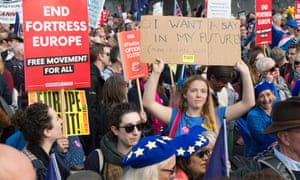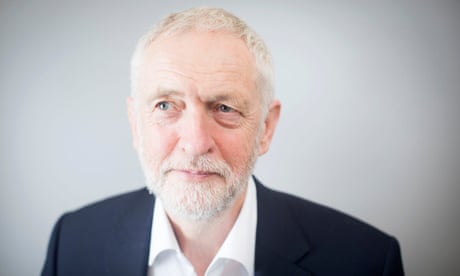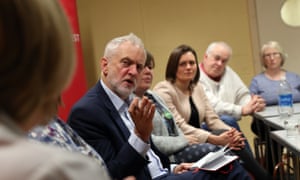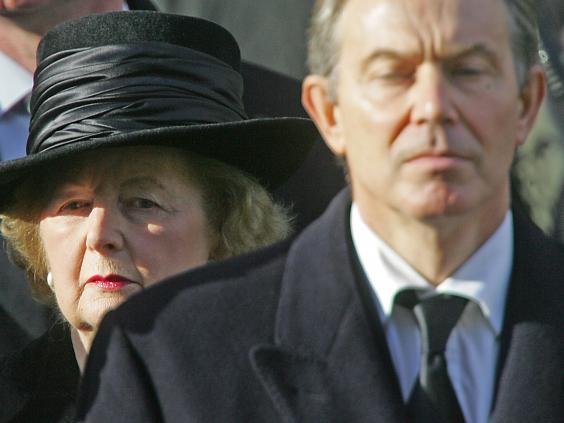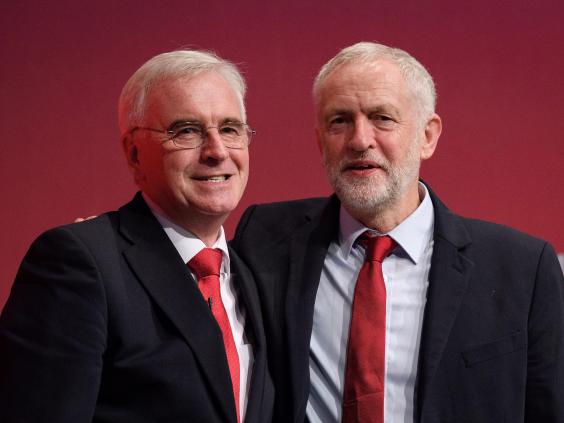The march through London for a People’s Vote in October. Photograph: Wiktor Szymanowicz/Barcroft Images
The Labour party is united: the vast majority of its MPs, its members and its voters – from all classes – want Britain to stay in the European Union. They recognise that Brexit is a project by the right for the right.
For the EU stands for openness, peace, tolerance and the best of the Enlightenment traditions. It is the most successful institutional architecture forging international collaboration yet known. Britain has benefited immeasurably from its membership. It is the European answer to the 21st-century question of how to manage interdependencies between countries – economic, trading, security, financial, scientific – in a world where necessarily they must grow.
Those who believe in it as a force for good do not want to go down without a struggle – to wimp out because to have another democratic encounter with the issue is said to be anti-democratic, arousing dark warnings of impending civic unrest from those asked to vote again. A one-off, never to be revisited referendum, as in totalitarian states in the 1930s, has become an irreversible building block for a rightwing world, with the connivance of parts of the old left that hold the same conception of imagined, untrammelled national autonomy as the extreme right.
This brutal right, with its increasingly strident nationalist and racist overtones, is not going to go away after Brexit – it will raise the stakes still further, attempting to turn our beloved country into a venomous, intolerant cesspit. It has to be confronted sooner or later. Better sooner.
Yet Labour’s leadership refuses to speak for this powerful and growing conviction within its party – in the country, too, with opinion polls hardeningin favour of EU membership. As the government amazingly puts the country on to a war footing to manage the fallout of an impending hard Brexit, Labour’s voice is weak and temporising. In his interview with the Guardian Jeremy Corbyn says that even if Labour won a snap general election, it would lead the country out of the EU but with a “better deal” built around a permanent customs union. Ongoing EU membership threatens a socialist programme, he argues, because of state-aid rules. If Theresa May recasts her deal in softer terms, he will back it, he says.
His stance is wrong at every level. First, he has just reduced his electoral base to the shrinking Leave vote so that Labour will not and cannot win a general election. Remain voters, now the majority, must find another home. Worse, he is threatening the cohesion of his party by opposing its majority view and the values that support it, just as Brexit is threatening the cohesion of the Conservative party.
All members of the Labour party must now examine their conscience: is this what they stand for and believe? The Corbyn deal, which can only be incrementally different from the May deal, will suffer from all the same deficiencies. We are to be associated with our continent as a satellite but not to share in its governance or play a part in shaping its destiny.
It betrays a 19th-century view of socialism. What industries are going to be built by direct government subventions? The world of the future is not state-supported steel and cement companies. Britain has the third largest AI industry and could become the global hub for blockchain – all done inside the EU. The task for 21st-century socialism is not to bankroll directly such vigorous businesses. It is to build the architecture to generate more of them, enfranchise workforces, protect the backs of ordinary men and women, put environmental sustainability at the heart of our economy and continually to upgrade the social contract. In this, the EU is our ally, not our foe.
The case must be put to the people again, framed by what we now know. It must be allied to a passionate case for reform. The desperate poverty and extraordinary inequalities that disfigure our country and that properly persuaded millions they could not vote for the status quo have to be addressed. Our economy has to be reshaped by an imaginative state; our society recast; our political institutions reformed.
On top, we need two reciprocal commitments from Europe. Freedom of movement is a core freedom, but host societies must have the capacity to regulate inflows of people, otherwise intolerable strains are created. The multiple derogations from freedom of movement used by other EU states must be codified into a new deal that permits Britain, and of course other members, sufficient control of our borders.
Second, the EU itself needs a democratic and accountability reboot. We are not recommitting to the same old EU – but one committed to change.
This case would best be made by Labour as the centre of a cross-party coalition: it has credibility as a fighter against poverty and abusive capitalism and an advocate for internationalism. But the case for tolerance and openness cannot be made from a tribal silo. I admire Tories such as Phillip Lee, Jo Johnson and Sam Gyimah who have resigned on this issue, and others such as Anna Soubry, Justine Greening, Sarah Wollaston, Ken Clarke and Dominic Grieve. I would be proud to stand and campaign alongside them – and also Nicola Sturgeon, Caroline Lucas and Vince Cable. Any differences are secondary to what unites us. What does our country stand for, what is its future and who are our allies? Not Putin, Xi and Trump.
Such a declaration will write me off with Corbyn, his gatekeepers Seumas Milne and Karie Murphy, and his cheerleader in the union movement, Len McCluskey. Anyone not 100% loyal to their world view and tribe within a tribe is beyond the pale. Even in normal times, it is a disabling way to think and act in a democracy. Today, it is dangerous. The Labour party has hit bottom – conniving in antisemitism and now in the rightwing coup that is Brexit. Its break-up is no longer inconceivable, nor is the emergence of a left-of-centre alternative. Britain deserves better than this.
The Labour party is united: the vast majority of its MPs, its members and its voters – from all classes – want Britain to stay in the European Union. They recognise that Brexit is a project by the right for the right.
For the EU stands for openness, peace, tolerance and the best of the Enlightenment traditions. It is the most successful institutional architecture forging international collaboration yet known. Britain has benefited immeasurably from its membership. It is the European answer to the 21st-century question of how to manage interdependencies between countries – economic, trading, security, financial, scientific – in a world where necessarily they must grow.
Those who believe in it as a force for good do not want to go down without a struggle – to wimp out because to have another democratic encounter with the issue is said to be anti-democratic, arousing dark warnings of impending civic unrest from those asked to vote again. A one-off, never to be revisited referendum, as in totalitarian states in the 1930s, has become an irreversible building block for a rightwing world, with the connivance of parts of the old left that hold the same conception of imagined, untrammelled national autonomy as the extreme right.
This brutal right, with its increasingly strident nationalist and racist overtones, is not going to go away after Brexit – it will raise the stakes still further, attempting to turn our beloved country into a venomous, intolerant cesspit. It has to be confronted sooner or later. Better sooner.
Yet Labour’s leadership refuses to speak for this powerful and growing conviction within its party – in the country, too, with opinion polls hardeningin favour of EU membership. As the government amazingly puts the country on to a war footing to manage the fallout of an impending hard Brexit, Labour’s voice is weak and temporising. In his interview with the Guardian Jeremy Corbyn says that even if Labour won a snap general election, it would lead the country out of the EU but with a “better deal” built around a permanent customs union. Ongoing EU membership threatens a socialist programme, he argues, because of state-aid rules. If Theresa May recasts her deal in softer terms, he will back it, he says.
His stance is wrong at every level. First, he has just reduced his electoral base to the shrinking Leave vote so that Labour will not and cannot win a general election. Remain voters, now the majority, must find another home. Worse, he is threatening the cohesion of his party by opposing its majority view and the values that support it, just as Brexit is threatening the cohesion of the Conservative party.
All members of the Labour party must now examine their conscience: is this what they stand for and believe? The Corbyn deal, which can only be incrementally different from the May deal, will suffer from all the same deficiencies. We are to be associated with our continent as a satellite but not to share in its governance or play a part in shaping its destiny.
It betrays a 19th-century view of socialism. What industries are going to be built by direct government subventions? The world of the future is not state-supported steel and cement companies. Britain has the third largest AI industry and could become the global hub for blockchain – all done inside the EU. The task for 21st-century socialism is not to bankroll directly such vigorous businesses. It is to build the architecture to generate more of them, enfranchise workforces, protect the backs of ordinary men and women, put environmental sustainability at the heart of our economy and continually to upgrade the social contract. In this, the EU is our ally, not our foe.
The case must be put to the people again, framed by what we now know. It must be allied to a passionate case for reform. The desperate poverty and extraordinary inequalities that disfigure our country and that properly persuaded millions they could not vote for the status quo have to be addressed. Our economy has to be reshaped by an imaginative state; our society recast; our political institutions reformed.
On top, we need two reciprocal commitments from Europe. Freedom of movement is a core freedom, but host societies must have the capacity to regulate inflows of people, otherwise intolerable strains are created. The multiple derogations from freedom of movement used by other EU states must be codified into a new deal that permits Britain, and of course other members, sufficient control of our borders.
Second, the EU itself needs a democratic and accountability reboot. We are not recommitting to the same old EU – but one committed to change.
This case would best be made by Labour as the centre of a cross-party coalition: it has credibility as a fighter against poverty and abusive capitalism and an advocate for internationalism. But the case for tolerance and openness cannot be made from a tribal silo. I admire Tories such as Phillip Lee, Jo Johnson and Sam Gyimah who have resigned on this issue, and others such as Anna Soubry, Justine Greening, Sarah Wollaston, Ken Clarke and Dominic Grieve. I would be proud to stand and campaign alongside them – and also Nicola Sturgeon, Caroline Lucas and Vince Cable. Any differences are secondary to what unites us. What does our country stand for, what is its future and who are our allies? Not Putin, Xi and Trump.
Such a declaration will write me off with Corbyn, his gatekeepers Seumas Milne and Karie Murphy, and his cheerleader in the union movement, Len McCluskey. Anyone not 100% loyal to their world view and tribe within a tribe is beyond the pale. Even in normal times, it is a disabling way to think and act in a democracy. Today, it is dangerous. The Labour party has hit bottom – conniving in antisemitism and now in the rightwing coup that is Brexit. Its break-up is no longer inconceivable, nor is the emergence of a left-of-centre alternative. Britain deserves better than this.
